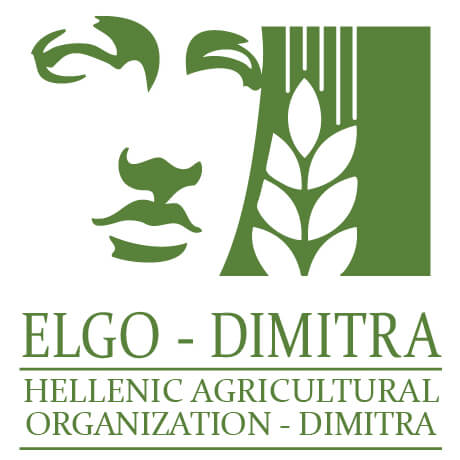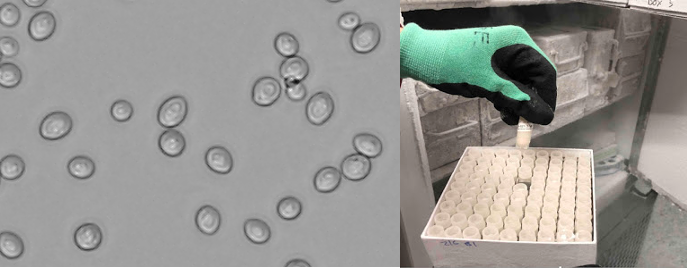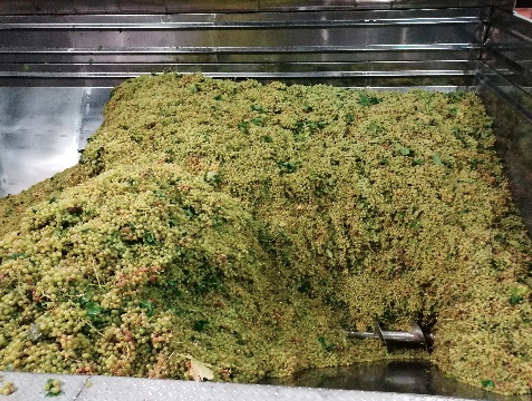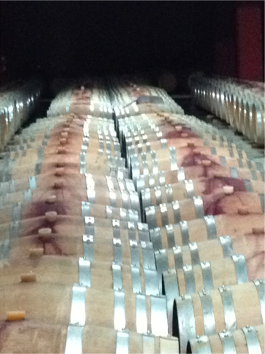
AGRICULTURAL RESEARCH

The research team at the Institute of Agricultural Products Technology of ELGO-DIMITRA is utilizing the indigenous microbiota of the Greek vineyard to produce high-quality wines with a geographic footprint.
Winemaking in Greece appears to have found a “microscopic” ally that can make Greek wines genuinely unique. Scientists are discovering that the microbiota of each viticultural region is unique and influences the wine's taste and character more than we might think. At the Institute of Technology of Agricultural Products (ITAP) of ELGO-DIMITRA, researchers are exploring this microcosm, harnessing the natural microbial biodiversity of the Greek vineyard to create wines with a distinctive identity.

“The truth is that only a small fraction of microorganisms has been isolated and evaluated, and an even smaller portion is used in alcoholic fermentation, consisting of a very limited number of wine yeast strains. Winemaking is overwhelmingly carried out using standardized commercial preparations of exotic strains of Saccharomyces cerevisiae. However, indigenous or ‘wild’ yeast and bacterial strains that are part of each region’s ecosystem could enhance and differentiate the organoleptic characteristics of the local wine”, explains Dr.Aspasia Nisiotou, researcher at the Institute of Technology of Agricultural Products (ITAP) of ELGO-DIMITRA. She clarifies that ITAP now includes the historic Wine Institute, which, since its founding, has been the only public research entity in Greece systematically and comprehensively studying wine and alcoholic beverages. Over the past decades, it has contributed significantly to the development of oenology and winemaking in the country.
“Wild Fermentation” Wines
The European Union (EU) has traditionally held the top position in global wine production, accounting for 175 Mhl annually, which represents 65% of the world’s production. Greece contributes approximately 3,100 hl per year.

Given the globalization of the wine market and the dominance of a small number of grape varieties, the comparative advantage of European wines over those from the New World (e.g., Chile, Australia, South Africa) mainly lies in their reputation and the distinctive organoleptic characteristics linked to their region of origin.
Utilizing indigenous microbiota in winemaking could add value to Greek wine. That is why ITAP researchers are focusing on developing and improving fermentation technology using native microbiota, leveraging wild yeast strains or non-Saccharomyces species.
Some winemakers have recognized the advantages of spontaneous fermentation and have returned to the traditional practice of non-inoculated fermentations, producing “wild fermentation” wines. Although this method can result in wines with typicity and complexity, there is always the risk of fermentation deviations due to spoilage microorganisms, as well as quality fluctuations from year to year. To address these challenges, researchers at ITAP propose mixed starter cultures with indigenous yeast or bacterial strains. “The application of blends of selected indigenous strains from each region can ensure the production of wines with a strong local character while simultaneously controlling the process to produce a safe, stable-quality wine”, adds the researcher of ELGO-DIMITRA.
‘The preference for so-called ‘wild fermentation’ wines is expected to grow in the near future due to shifting consumer preferences from mass-produced wines to high-quality wines and products made through natural processes with minimal technological intervention. Wild, controlled fermentation aligns with modern consumer demands for safe wines with a distinctive local character and is expected to enhance their competitiveness in the global market”, predicts Dr.Nisiotou.
“Wild Wines” with Aroma and Flavor

There is a vast microbial biodiversity in Greek vineyards, often exhibiting genetic and phenotypic variation among different viticultural zones. However, not all “wild” strains are capable of producing quality wines. The ELGO-ITAP team has carried out research to investigate microbial biogeography in Greek vineyards, isolate yeasts from Greek vineyards, and evaluate their technological characteristics to identify suitable strains for winemaking.
The idea is to highlight and utilize the unexplored and inexhaustible genetic wealth of vineyard microorganisms. “The main technological goal is to select new and suitable starter cultures and develop inoculation protocols to enhance the unique characteristics of each grape variety. For example, we can use non-conventional yeasts to enhance the aroma of a variety, improve specific characteristics (e.g., lower acidity), overcome winemaking challenges, address issues related to climate change (e.g., fermentation of high-sugar musts), and promote the regional identity of wines by showcasing microbial terroir. We are now very close to personalizing starter cultures based on grape variety, wine type, etc.," describes Dr. Nisiotou.
According to her, designing appropriate complex cultures of indigenous yeasts will enable the production of safe, stable-quality wines through controlled "wild" fermentations. This approach will allow wineries and wine companies to introduce improved wines to the market with minimal intervention, meeting contemporary consumer demands for natural, safe, and high-quality products.
The ultimate goal is for Greek companies and wineries to acquire the necessary "tools" to enhance their technological capabilities, competitiveness, and revenues through the production of "wild fermentation" wines using indigenous microbiota. In this way, the quality and competitiveness of Greece's regional wines will be significantly improved.
Information: Dr. Aspasia Nisiotou, ELGO-DIMITRA, Related Institute: Institute of Technology of Agricultural Products, Athens, anisiotou@elgo.gr
Text: Vasso Mihopoulou